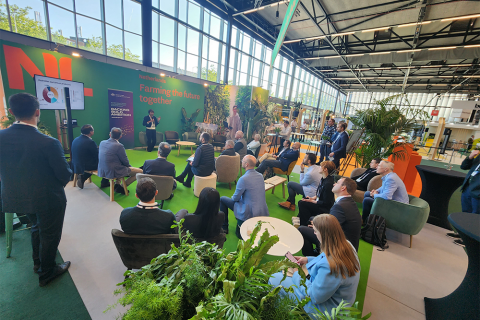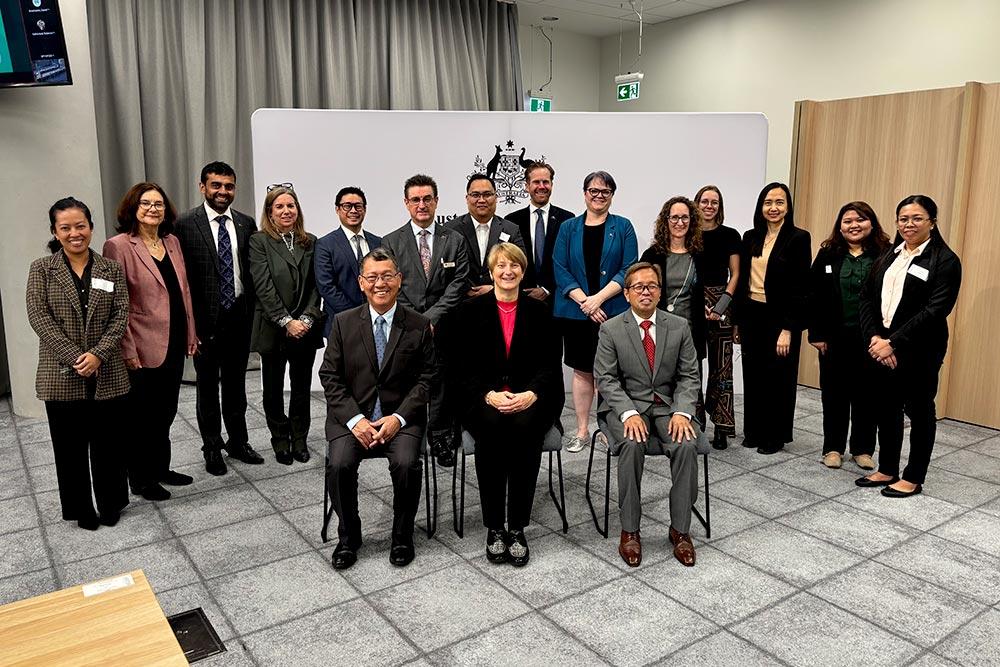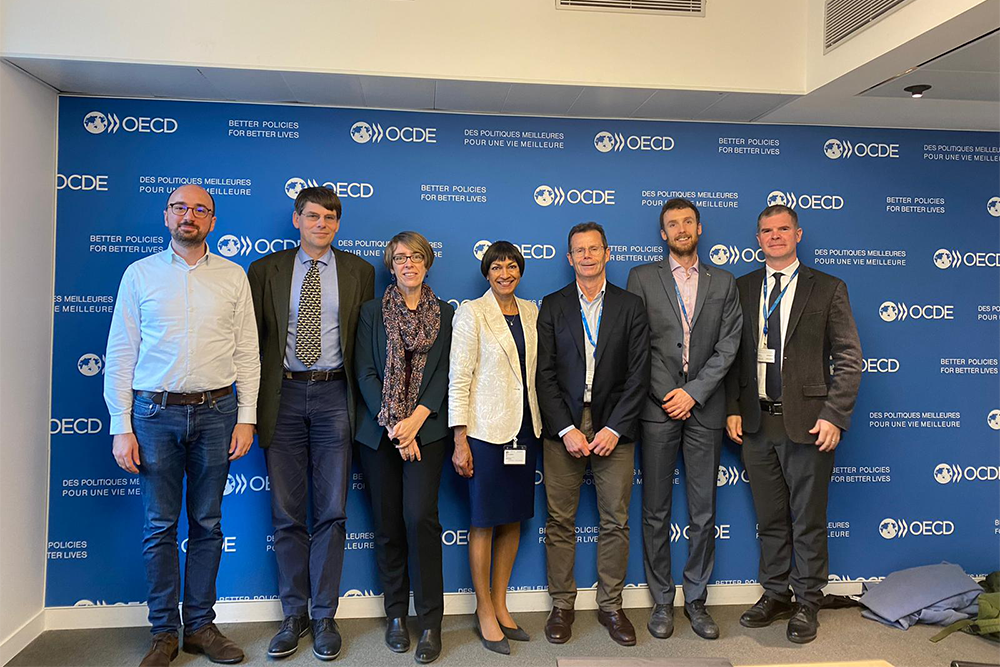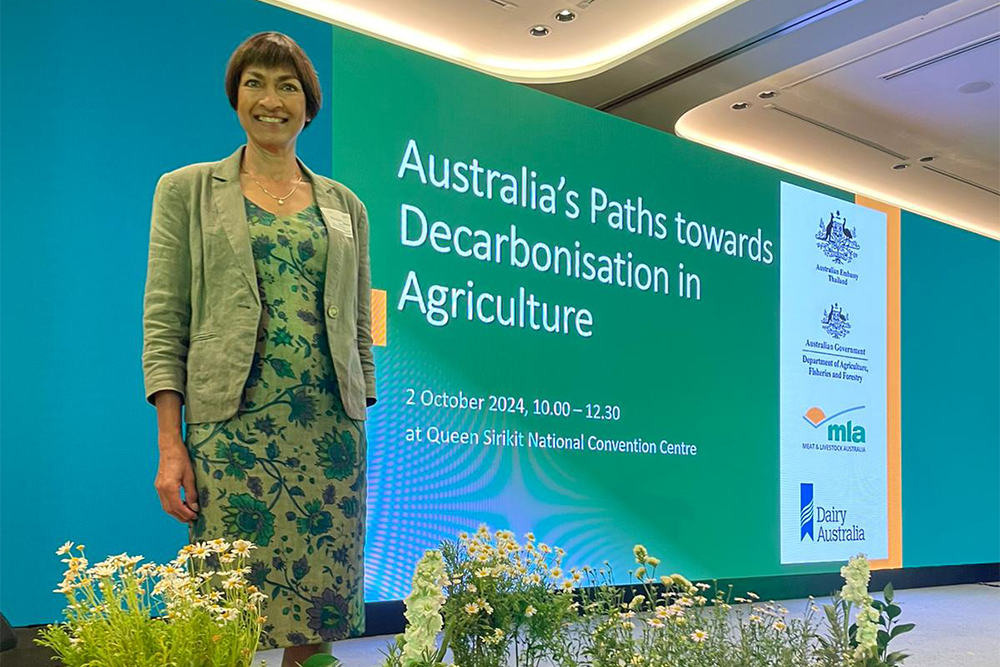The Special Representative for Australian Agriculture (SRAA), Ms Su McCluskey, travelled to Germany, the Netherlands and Italy in June 2024 to promote Australian sustainable agriculture practices and learn the agricultural trade policy the EU is using to drive global action.
The SRAA collaborated on this trip with Tony Mahar (CEO) and David Jochinke (President) of the National Farmers’ Federation (NFF), and Peter Creaser, Agriculture Minister Counsellor (EU Mission, Brussels) and Emma Hatcher, Agriculture Counsellor, Food and Agriculture Organisation (FAO, Rome) of DAFF.
“It’s important to learn how others like the EU are creating sustainable agriculture policies and equally important that Australia’s voice be heard on the world-stage to influence global action—especially as Australia’s production environment is quite different to Europe’s and other countries’,” Ms McCluskey said.
“Global discussions in this space need to consider that one approach won’t suit all countries around the world. By directly engaging with the EU, we can ensure Australia’s position is heard in making international climate-smart policy that will affect Australian producers.
“We demonstrated to the EU Australia’s successful and strong industry-government partnership approach to finding ideas and solutions from which policy can be developed—we believe this is a better approach than governments creating ‘carrot and stick’ incentives for industry.”
In Germany (Frankfurt), the SRAA delivered a presentation at the International Agriculture Innovation Conference. This event brought together government, industry and business from across Europe and Southeast Asia to discuss innovative sustainable practices for agriculture. The SRAA provided examples of Australian agricultural innovation to meet climate challenges, explaining how producers proactively improved practices and productivity without the lure of subsidies—demonstrating a different mindset to Europe.

In the Netherlands, the SRAA met with the Dutch Ministry of Agriculture affording a deeper understanding of the EU focus on reducing greenhouse gases and their attention to nitrogen. Nitrogen itself makes up 78% of the earth’s atmosphere and is harmless, however when it reacts with other elements to become ammonia or nitrogen dioxide, it becomes toxic.
A Netherlands court decision in 2018 put a cap on nitrogen, limiting agriculture production until it can be demonstrated there will be no net gain in nitrogen emissions. This had the effect of putting the public offside with agriculture and impacted cattle farmers who had their herds reduced or removed by the government. Producers in the Netherlands felt this decision was ‘too much, too soon’, a rapid and disruptive change.
On this visit, Dutch industry representatives could see the merits of Australia’s industry-government approach with our commodity-focused Research and Development Corporations undertaking research for farmer-led solutions.
The SRAA was also impressed by the government, university and business cooperative model for sustainable agriculture and innovation in the World Horti Centre.
In Rome, at the World Farmers’ Organisation Conference, the SRAA met the Canadian Federation of Agriculture (CFA) and the Argentine Rural Society (SRA). These meetings strengthen coalitions of likeminded nations who share Australia’s views on the EU deforestation policy.
The SRAA and NFF presented the Australian Agriculture Sustainability Framework at the Australian High Commissioner’s Residence, which was well received. Participants included farmer organisations, World Farmers’ Organisation representatives, Permanent Representatives to the Rome-based agencies as well as FAO and WFP representatives.
While in Rome the SRAA also reconnected with members of the FAO who requested she contribute to their work in finding innovations to transform food systems.
The SRAA’s visit to Europe has generated better understanding of the current state of EU policy and the impacts on farming organisations. This insight will be essential to share with Australian industry, producers and government to help inform next steps on the industry-led AASF and government’s climate-smart policy as part of Australia’s Agriculture and Land Plan. Normal text.
Read more from the Special Representative for Australian Agriculture



